As we approach the middle of Ramadan in the UAE, it might have struck you that this year’s holy month feels a little different to ones in years gone by. Newly relaxed rules about the serving of food and drink in public in Dubai during fasting hours mean that cafes and restaurants that once would have been shuttered up or curtained off during the day may now stay open. This year’s Ramadan also falls during peak tourist season, when many schools around the world are still on Spring Break, and eased COVID protocols means visitor numbers are once again on the up.
But Ramadan remains an extremely important month and the holiest time of year for Muslims; one steeped in prayer, reflection, fasting and certain expectations that those who are new to the country or unfamiliar with the UAE’s Islamic traditions may struggle to understand or navigate at first.
We spoke to schools, parents and pupils in the UAE to ask them what makes Ramadan so special, how they mark it in their community – and what non-Muslims can do to be sensitive to the importance of this holy period.
What is Ramadan?
Ramadan is the ninth month of the Islamic calendar, and for Muslims it is a time dedicated to quiet reflection, prayer, spending time with family and doing charitable works to help those in need. During the month of Ramadan, Muslims fast – meaning that they do not eat or drink anything at all – during daylight hours. Children are not expected to fast until they reach puberty, usually around the age of 14, although some may choose to do so earlier.
What Ramadan means in UAE schools.
One change that all parents will have noticed is the reduction in school hours during Ramadan. Dubai’s school regulator, the Knowledge and Human Development Authority (KHDA), announced that schools should provide a maximum of five hours of instruction time per day throughout Ramadan, and that classes should end by 12pm on Fridays. Many Muslim staff members and children fast during the day – getting up very early or staying up late to eat in hours of darkness – and the shortened hours are set to help accommodate this fact.
The KHDA has also advised schools to limit the amount of homework and revision, calling on schools to ensure teachers, students and parents get to spend more time in prayer and with their families.
However, most nurseries and schools will also hold special community initiatives or events to mark this special month. As well as community iftars or donation initiatives – which thankfully are possible again in many circumstances due to the relaxing of COVID protocols – there are many creative and interesting programmes that education providers use to teach children about the meaning of Ramadan…
How do UAE schools make Ramadan special?
Lysiane Ruf, Academic Director at Future International Nursery, explains the great lengths that they take to mark the holy month for their children:
“We want to make sure everybody feels included, all children and families, Muslims and non-Muslims alike, during this special month. We therefore put the emphasis on universal values that are important during Ramadan, such as kindness, charity, empathy and generosity.”
“We have an annual challenge during the month of Ramadan: Kindness Challenge. Children take home suggestions of acts of kindness that correspond to their level of development and parents can send us pictures of children performing their daily ‘acts of kindness’, such as helping around the house, calling a relative, etc. We have a very special Kindness Wall display in our reception every Ramadan!”
Future International Nursery also involves the children in hands-on charitable acts, which include a field trip to a supermarket where little ones are given a level of responsibility that most nursery students would never be able to dream of having; you can just imagine the impression it must make on young minds:
“We get monetary donations from parents and children prepare food packs, getting involved in all the steps: they have a whole shopping experience, from making a list of items to buy, to taking the bus and going to the supermarket; they select themselves the items on their list (non perishable items) and are also involved in sorting out food packs.”
“Prior to COVID, our older children were also the ones distributing the packs to labourers, under the supervision of their teachers.”
Prior to COVID, our older children were also the ones distributing the packs to labourers, under the supervision of their teachers.”
“Children are also involved in collecting toys, and clothes, sorting them for donations.”
To further bring home the meaning of Ramadan, the children even experience a mini version of fasting:
“As part of our exploration of the meaning of this month, our older children experience as well ‘1 hour fast’ with parents’ permission. The whole class avoids drinking and eating for one hour, discussing about what happens in our body when we don’t eat or drink. Children are eager to participate and finish their ‘1 hour fast’, with a feeling of accomplishment. The children who want can also bring their prayer mats in.”
Karim Murcia, Principal of GEMS Al Barsha National School, explained to SchoolsCompared that they make various provisions for fasting children at their school:
“At GEMS Al Barsha National School every effort is made to ensure that students, parents and staff members benefiting from the blessings of this special month. Students who are fasting will spend breaks and lunch times in their classrooms where they will have a quiet space. Students who are not fasting spend breaks and lunch times in other areas.”
“Students follow the same timetable, however, lessons are shortened from 60 minutes to 40 minutes. PE lessons continue but the timetable and curriculum are adapted to ensure that activities are light and take account of students’ needs during the Holy month. Time is built in to the school day to support students in engaging with our Ramadan programme which includes opportunities for giving to charity, volunteering and additional reading of the Holy Qur’an.”
The date of Ramadan shifts forward by 10 days every year, and this year it falls during school term time, when some students are required to be revising or taking exams.
At Al Mamoura Academy in Abu Dhabi, the Senior Leadership Team advises their Muslim children to balance their observances with their studies:
“Our advice would be to not fast if a student has any external examination during the period of Ramadan as we want them to be able to achieve their full potential and believe that going in having had a full night’s sleep and a hearty breakfast will be one element of achieving this. If a student does continue to fast, then we would advise that they have an early night the night before and do wake up for their Suhoor meal.”
“During Ramadan, it is all about being respectful to those around us and thinking before doing something that could cause offense. We recommend asking your fellow Muslim friends for advice if you are uncertain about anything as they would be able to guide you in the right direction.”
What should UAE parents know about Ramadan?
The UAE’s eclectic international schools mean that people of all races and religions mix regularly at the school gates and in and around classrooms. During Ramadan, this can lead to some questions, as non-Muslims try to navigate the mores and expectations of this special time.
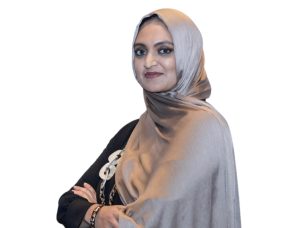
Mehnaz Anshah has published several Islamic Educational books for children and consults with schools and educational institutes on their Islamic Educational Content.
We spoke to a group of Muslim mothers and students connected to Bismillah Buddies – the flagship brand for Uhibbook Publishing, which is dedicated to making Islamic Education fun, engaging and relevant for children – and asked them what they think non-Muslim parents need to know about Ramadan and how it affects school life. Here are their ten facts, for parents, by parents, about Ramadan, those that shine a light on how we can all make a difference and play our part in this extraordinarily special time of year…
Fact 1: “Fasting is not a punishment.”
One of the key misapprehensions that many people have about Ramadan is the idea that it is gruelling or punishing in some way – rather, it is something they look forward to, Muslim parents tell us.
Mona, whose children attend Cambridge International School Dubai, points out that a lot of non-Muslims do not realise and are shocked that fasting means even water cannot be had during the day:
“Yes, fasting means not even water! But it all seriousness, I think it’s important for people to know that it’s not as hard as you might think it is. That we like and want to do it! It brings us closer to Allah.”
~~
Fact 2: It’s not just about fasting.
Nevertheless, Ramadan is by no means only about fasting.
The most important aspect of Ramadan is “Spending time together, praying for each other, and trying to become better people,” says Mehnaz Anshah, a mother of two and co-founder of Bismallah Buddies, who has published several Islamic Educational books for children and consults with schools and educational institutes on their Islamic Educational Content.
Meanwhile Dubai-based mother Khadija, whose children go to Safa British School, says Ramadan is a month of detoxing the soul and body. “As a family, we look forward to spending time together at Iftar, praying together and reading Qur’an the most.”
Fellow Muslim mum Zahra, whose boys go to The Gems Legacy School, said that the concepts of kindness, generosity and deep worship are the most important aspects of Ramadan for her family. “Ramadan is not only about going hungry but also abstaining from a lot of bad habits we may have developed, as a form of cleansing.”
Mehnaz adds:
“It is a month of deep reflection, heart felt prayer and self improvement. The calm and quiet is more important than the loud parties and fancy meals.”
~~
Fact 3: Many children choose to fast, even if they’re not obliged to.
Many school-age Muslim children fast; even those who aren’t necessarily expected to do so. Children do not need to fast until they ‘come of age’ or reach puberty, but many choose to and are often allowed to from the age of around eight, or even younger. Regarding students fasting in school, parents agreed that it depends on the child’s age and maturity. Azmina, a homeschooling mum of four, said that creating a favourable and encouraging environment for children to fast at an early age is important, so they will find it easier when they come of age.
Khadijah, a Safa British School mum, says many children want to fast because it brings a great sense of achievement:
“Of being able to defeat your temptations and the peaceful feeling of being in the presence of God and his blessings, as well as the feeling of enjoying the food gathering with family and loved ones after earning your spot (fasting the whole day). This all encourages not only kids but even adults to fast too.”
Mona, a mother of children at Cambridge International School, says:
“They want to belong, to be part of the excitement, and the collective effort of the community for the sake of Allah.”
Nasreen says that fasting can actually make children feel empowered:
“Because it is something everyone is doing, it tests their resolve, it makes them feel in control.”
Fasting can be a rite of passage and point of pride, adds Mehnaz:
“They are motivated by the rewards they get, to feel included in the whole atmosphere – and some bragging rights!”
~~
Fact 4: Others might find it offensive if you eat or drink in front of them.
While Dubai cafes and restaurants used to have to apply for a special licence to serve food or drinks during daylight hours in Ramadan, and needed to curtain off any areas where this was happening, these requirements were dropped in 2021. Nevertheless, it is still generally expected that you should not to eat or drink in public during Ramadan (aside from young children). Parents were divided on whether eating in front of a fasting person is considered disrespectful; some believed it is offensive, others say it doesn’t bother them at all.
Mubeen, who homeschools, explains:
“I would not find it offensive if someone were openly eating or drinking in front of me during Ramadan, but I would appreciate if they were considerate towards my religious practice. It develops an atmosphere of empathy.”
Muslim mum Azmina agrees:
“I would not find it offensive either – this is part of life and part of the test of fasting during Ramadan.”
However, Nasreen points out:
“It is not particularly respectful.”
And Ray says:
“Of course it is offensive. It’s all about people showing some consideration and some empathy.”
Mehnaz told SchoolsCompared:
“It isn’t offensive nor does it bother me if someone is eating in front of me, but it’s nice to be asked if I mind or not, as it shows that they are being mindful.”
~~
Fact 5: Ramadan hours do make a big difference to those fasting.
School timings during Ramadan are shortened to a maximum of five hours per day (as opposed to 7 hours usually), with Friday classes needing to be finished by 12pm. While some working parents might find the shorter timings a challenge, it is a huge benefit for fasters, our contacts say:
“We absolutely appreciate the shorter time spent at school,” says Mehnaz. “We are able to spend that time at home doing extra prayers, Ramadan prep and in self-reflection.”
“Yes I think it’s perfect,” agrees Maria. “Actually weekends can feel too long because the time goes slower when you can’t eat or drink.”
Mona adds:
“Yes, I like that we get extra time to do Ramadan related stuff. It’s a break from the daily routine to really focus on Ramadan and religious tasks or activities and family bonding.”
~~
Fact 6: The way you dress does matter over Ramadan.
When asked what can non-fasting people do to help those who are fasting over Ramadan, the majority sentiment was that it is appreciated if people bear in mind the nature of Ramadan when it comes to their clothing.
Khadijah adds:
“The way people are dressed during Ramadan should be considerate of the month and its holiness. This applies to Muslims themselves too.”
Azmina agrees:
“Cover up and dress decently during school drop off and pick up times.”
Non-fasters should show empathy and respect to a fasting person, says Mehnaz:
“Be patient with them as they are running on lower energy levels as they get used to the routine.”
~~
Fact 7: Everyone finds different things hardest hardest during Ramadan at school.
Others eating or drinking without considering those who are fasting is one of the hardest things, says Khadijah:
“It is hard psychologically rather than physically.”
Everyone agreed that the hot weather of the UAE adds an extra layer of challenge for those who are abstaining from food and water during the day.
“The commute is one of the hardest aspects I think,” adds Mona. “Also I think different people work differently during the hours of the fasting day, so some flexibility would be amazing, as unrealistic as that seems.”
Mehnaz also says that sleep deprivation plays a large part:
“Your sleep cycle is generally disturbed, so the early start times are sometimes challenging. Pick-up-time traffic can be tricky too.”
~~
Fact 8: Ramadan does affect the school experience for Muslims.
Fasting during Ramadan can be tiring, says Zahra:
“And draining too; especially if Suhoor hasn’t been eaten properly.”
But it’s also one of the most rewarding and special months, Azmina says:
“If the school is supportive and doesn’t try to pressure children not to fast then Ramadan at school can become a lovely experience and an educational one for non-Muslims.”
Khadijah says her children look forward to Ramadan more than any other time of the year:
“They love the gathering, the sense of achievement, the less hours at school and the blessings you feel throughout the day.”
For Mehnaz Anshah, the change of pace is welcome:
“We look forward to the shorter timings. School activities are kept at a minumum. It’s all a bit subdued.”
~~
Fact 9: There are helpful things for all UAE parents to know about Ramadan.
Ramadan is a worldwide occasion for Muslims, not just in the UAE, says Mehnaz Anshah.
“It is a month of deep reflection, heartfelt prayer and self-improvement. The calm and quiet is more important than the loud parties and fancy meals.”
Maria says:
“That is in an amazing thing to share as a family and that it is not as hard as it may sound.”
Nasreen says:
“That fasting doesn’t mean the kids are dying.”
Azmina says:
“That it’s not a punishment from Allah it’s a lesson and blessing.”
~~
Fact 10: There are things that non-fasting people can do to help those who are fasting.
When asked how others could be respectful to those who are fasting, the most common opinion was for people to be patient and mindful of their peers. Another was to be respectful in appearance by dressing modestly. Nasreen, a parent of kids from Cambridge International School said that it is important for people to understand that tempers “can flare sometimes.”
Parents appreciated the efforts of schools during Ramadan and welcomed initiatives like school iftar and charity runs. Most parents sought more awareness and engagement activities to be part of the daily routine rather than just during Islamic Lessons. Ray, whose kids go to Safa British School said she would love Ramadan to be celebrated in schools with “as much gusto as Christmas.”
Overall, parents wished for the values of Ramadan to be highlighted above elaborate meals and fancy décor. They wished for children to develop empathy towards those fasting and to be respectful towards personal beliefs. Parents maintained that spending the month of Ramadan in UAE was always a positive experience on the whole.
Bismillah Buddies aims to bridge this gap between what parents want and what schools are currently doing with a range of interesting Ramadan Themed books for children. Their titles ‘What is Ramadan’ and ‘My Ramadan Journal Around the World’ are fun activity books filled with educational facts for children between the ages of 5 to 12, whereas their first anthology titled ‘After Iftar Tales’ has short stories about the values of Ramadan and is perfect for kids ages 7 and above.
As Mehnaz says:
“Try to read and understand a little about Ramadan. There are excellent resources now available. (we are sick of hearing ‘not even water?”) participate in local charity initiatives, Be respectful of personal beliefs. Be modest in appearance and mannerisms.”
Ramadan Kareem.
© SchoolsCompared.com. 2022. All rights reserved.











































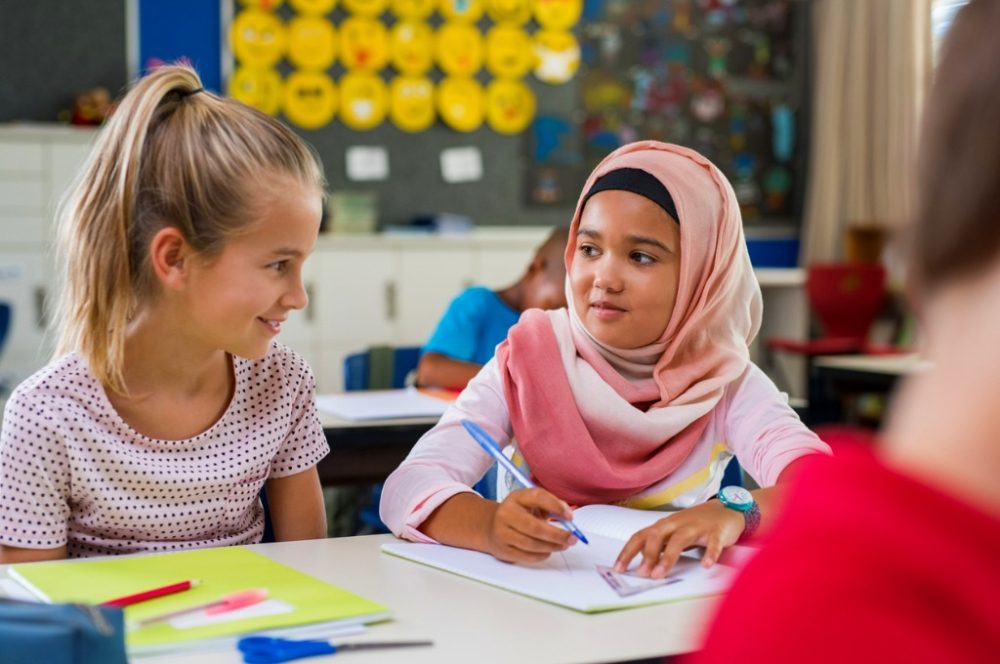



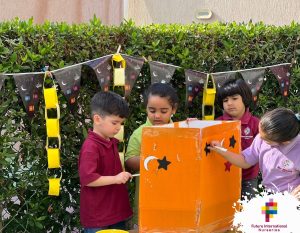
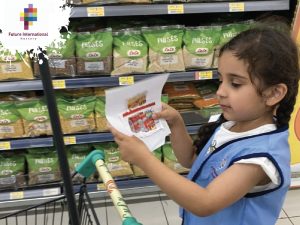
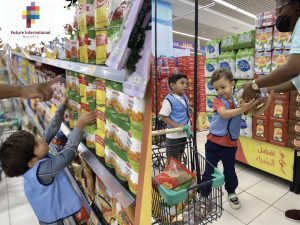
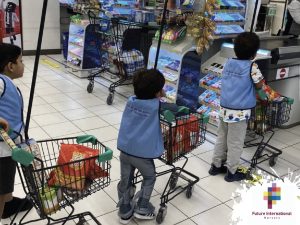

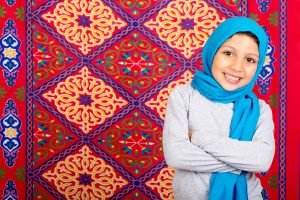
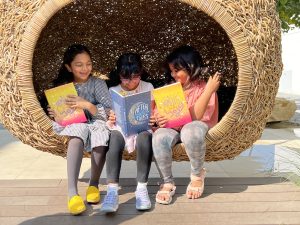
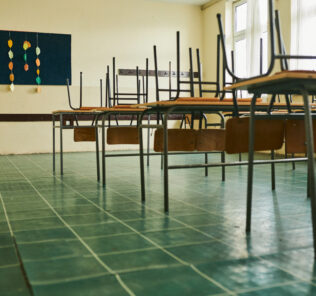









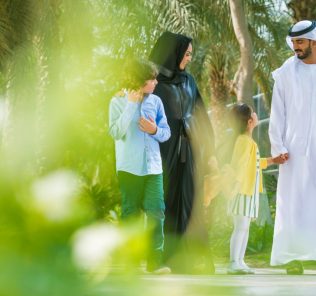














Leave a Response